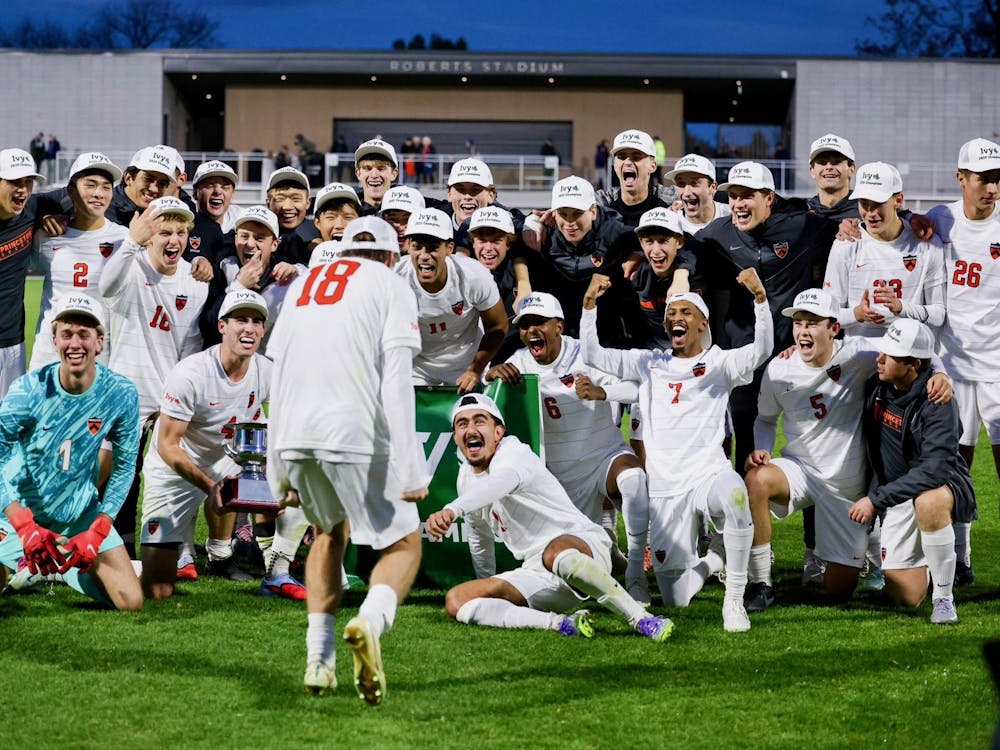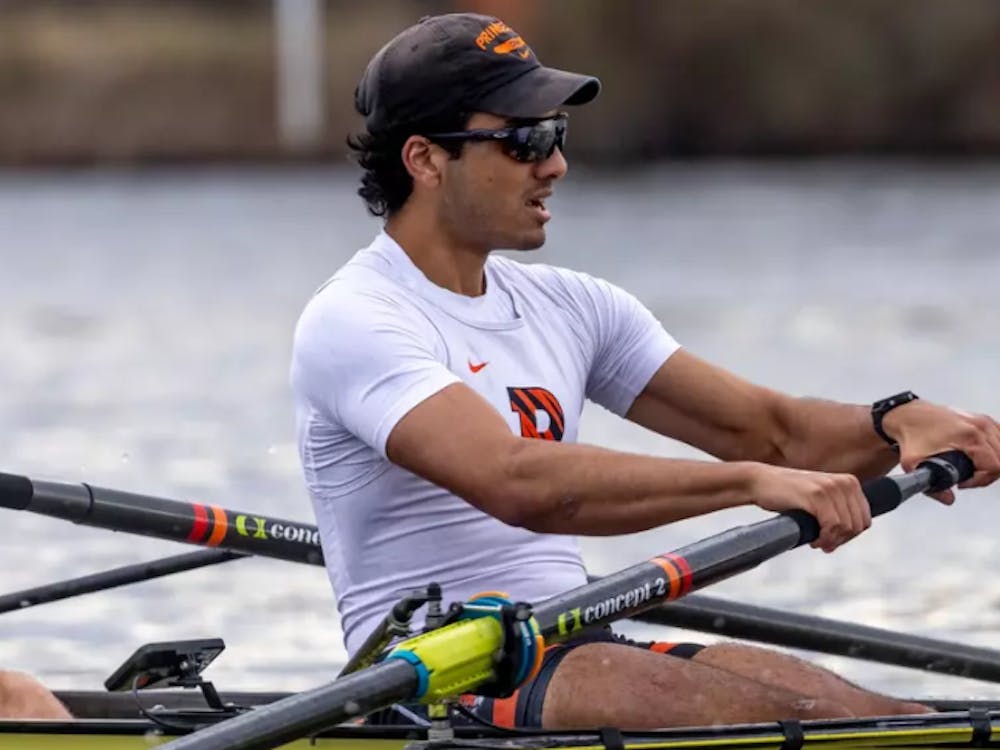The USG followed the Ivy Council and passed a resolution at its weekly meeting Sunday calling for the removal of the ban on postseason play for Ivy League football teams.
"What a resolution like this does is basically say that this is something that students support, this is something that the student government thinks is important," USG president Alex Lenahan '07 said. "It raises the profile of the issue and hopefully gets a conversation going."
Since 1951, the Ivy League has banned its football teams from participating in the postseason. The Division I-AA postseason, for which Princeton would be eligible without the ban, is a 16-team, single elimination tournament. Teams will play a maximum of four games.
The latest push to repeal the ban was sparked by Harvard's Ivy Council delegate Jordan Jones at a council meeting in the fall. Jones urged representatives to pass similar resolutions in their own student governments. The resolution adopted by the USG is identical to the one proposed by Jones. The full text can be found at here.
Ultimately, that conversation will have to include President Tilghman and her Ivy League counterparts. "The decision about post season play for all sports rests with the Ivy Presidents," Tilghman said in an email. "We discussed this issue last year, and concluded that we would not endorse a change for football."
Lenahan said that he had emailed Tilghman to alert her that the resolution was being passed.
The resolution attempts to rebuff a few commonly held arguments in defense of the ban. It disagrees with the assertion that postseason play should be banned because it would interfere with exams, saying that many other Ivy League sports' playoffs interfere with exams but those sports are still allowed to compete. As it stands, football is the only varsity sport prohibited from playing in the postseason.
"Basically the football team is the only team at Princeton that isn't allowed to go on and have a postseason," Lenahan said. "It seems like from what I understand there is a pretty overwhelming consensus among coaches and players and athletic directors that this isn't really fair."
Tilghman, however, defended the ban.
"The logic was not completely dependent on the exams schedule, but rather on the very special rivalry that has been our tradition of Ivy football," she said.
Jones goes on to point out in his resolution that the Patriot League, an athletic conference made up of northeast school with similar academic standards, lifted a nearly identical ban in 1997. "[The league] has since seen no adverse effects on academic standards," the resolution states.
But Tilghman pointed out that the ban is not in place solely for academic purposes.

"If the focus of competition became post season play, we would inevitably lose some of that great tradition," she said, adding that keeping competition within the Ivy League maintains the integrity of Ivy League football and helps prevent the "escalation in intensity (and player size) that has swept the rest of the country."
According to the resolution, there is solid support from athletic directors and coaches around the league to lift the ban. Both head football coach Roger Hughes and Director of Athletics Gary Walters '67 have spoken publicly in favor of allowing the teams to enter the playoffs.
"I would view the decision to go to a postseason as similar to the decision to admit women," Hughes said. "There's a long tradition behind it, and the reason the Ivy League was formed in the first place was football, so there are some views that are very deep-seated among the Ivy presidents."
Hughes added that he is excited to hear that the student body has renewed interest in the football program and is looking forward to seeing whether this resolution will spur debate among Ivy presidents. Doing so would be beneficial "both for our players and for Princeton as a whole," he said.
Walters was not available to comment due to his obligations on the NCAA men's basketball tournament selection committee.
Junior quarterback Jeff Terrell would like to see the ban lifted, and does not necessarily agree with Tilghman's claim that allowing postseason play would escalate the game's intensity from what it already is.
"Our non-conference games are mostly against playoff teams, and we went 2-1 against them last year," Terrell said. "For the amount of work we put in as a team, it's ridiculous that we don't have the opportunity to extend our season into the playoffs."
"I was pleasantly surprised to see the student body behind us," Terrell added. "I think the team is often perceived poorly on campus, and to have this kind of support from students means a lot."
Tilghman, however, remains unmoved. "This is a very visible sport, and we think that we are much better off being able to control our own destiny and set the ground conditions for recruiting and competition," she said.







